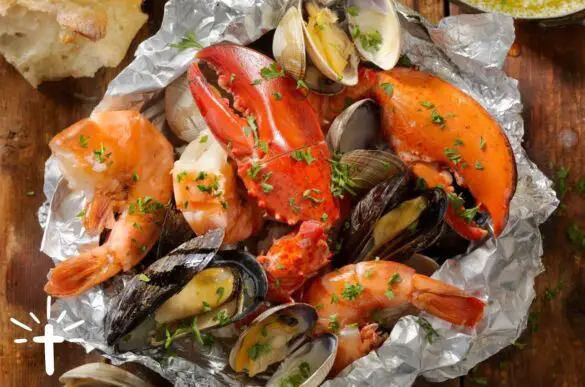Christians are divided on the question of whether or not it is ok to eat shellfish.
Some Christians interpret the Old Testament ban on eating shellfish as a health directive that is no longer relevant.
Others believe that the ban is still in effect and that shellfish should not be consumed.
The basis for this belief is the idea that shellfish are unclean animals and that consuming them would make a person unclean.
Still, others believe that the ban on shellfish was never meant to be taken literally and that it is acceptable to eat shellfish as long as they are properly prepared.
What are shellfish?
Shellfish are a type of seafood that includes crabs, lobsters, oysters, and shrimp.
They get their name from the hard shells that protect their bodies.
Most shellfish are scavengers, which means they feed on other animals that have already died.
This can make them dangerous to eat because they may contain toxins that can make people sick.
However, shellfish are also a good source of protein and other nutrients, which is why they are a popular food around the world.
When cooked properly, they can be a delicious and healthy addition to any meal.
What do shellfish eat?
Shellfish are a type of aquatic invertebrate that includes animals such as crabs, lobsters, and shrimp.
These creatures are filter feeders, which means that they strain small food particles out of the water as they swim.
The main diet of most shellfish is plankton, which is a small, floating organism that contains algae or bacteria.
Shellfish also eat other small invertebrates, such as larvae and worms.
Some species of shellfish are omnivorous and will also consume plant matter.
In general, shellfish are opportunistic feeders and will consume whatever food is available in their environment.
What does the Bible say about eating shellfish?
The Bible contains several references to shellfish, but there is some debate over what these passages actually mean.
In Leviticus 11:9-12, for example, shellfish are listed among a number of animals that are considered unclean and therefore unfit for human consumption.
However, in Acts 10:13-15, Peter has a vision in which he is told to possibly eat shellfish, and after he refused he subsequently was then told that all food has been made clean by God.
So what are we to make of these conflicting messages?
Some scholars argue that the passage from Leviticus refers to a specific historical context in which shellfish were known to be unclean and dangerous to eat.
Others believe that the prohibitions against eating certain foods were always meant to be symbolic, representing the idea that we should not put anything unclean into our bodies.
Ultimately, it is up to each individual to interpret these scriptures and decide for themselves what they believe.
Why was shellfish banned in the Bible?
The Bible contains many rules and regulations that might seem confusing to modern readers.
One such example is the ban on eating shellfish.
Leviticus 11:10-12 states, “And all that have not fins and scales in the seas, and in the rivers, of all that move in the waters, and of any living thing which is in the waters, they shall be an abomination unto you: They shall be even an abomination unto you; ye shall not eat of their flesh, but ye shall have their carcasses in abomination. Whatsoever hath no fins nor scales in the waters, that shall be an abomination unto you.”
So why were shellfish specifically singled out?
Some scholars believe that shellfish were a dietary staple of the Egyptians and other pagan cultures, and so consuming them would have been seen as a form of idolatry.
Others believe that shellfish were considered unclean because they were scavengers, and so eating them would have been viewed as akin to eating garbage.
Whatever the reasons for the ban, it’s clear that shellfish played an important role in the religious and cultural life of the ancient world.
What is the punishment in the Bible for eating shellfish?
There are a number of different penalties specified in the Bible for eating shellfish.
In some cases, such as when the Israelites were wandering in the desert, eating shellfish was punishable by death.
Other times, however, the punishment was less severe, such as being banned from the community for a period of time.
The reason for the different punishments is that the Bible views shellfish as ‘unclean’ food, and consuming it was seen as an act of disobedience.
Today, of course, we have much better food safety standards and we know that there is no inherent health risk associated with eating shellfish, but the Bible’s warning against it still stands.
Summary
Shellfish are a type of seafood that includes crabs, lobsters, shrimp, and clams.
For many Christians, the question of whether or not it is acceptable to eat shellfish is a matter of debate.
Some people believe that the Bible prohibits eating shellfish, while others argue that the dietary restrictions mentioned in the Bible no longer apply to Christians today.
There are a few different interpretations of the Bible verses that mention shellfish.
Some people believe that these verses are referring to a specific type of shellfish that was poisonous and could cause illness.
Others interpret these verses as a general prohibition against eating any type of seafood.
Still, others believe that the Bible only prohibits eating shellfish that has not been properly cooked.
Ultimately, whether or not Christians should eat shellfish is a matter of personal interpretation.
There are valid arguments on both sides, and there is no definitive answer.
Whatever you decide, be sure to pray about it and ask God for guidance.
